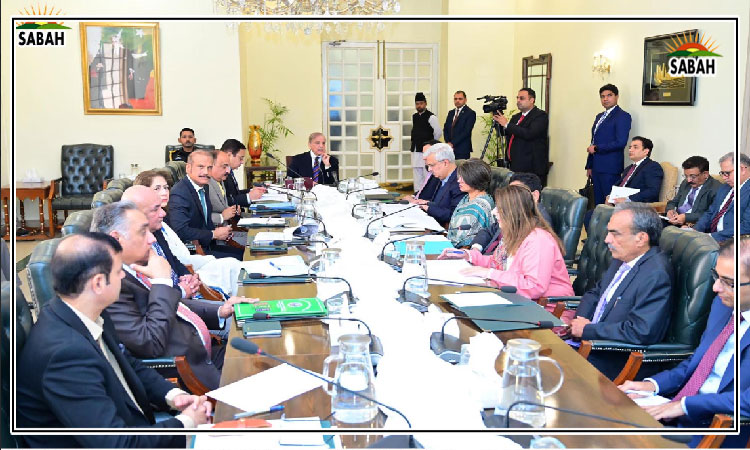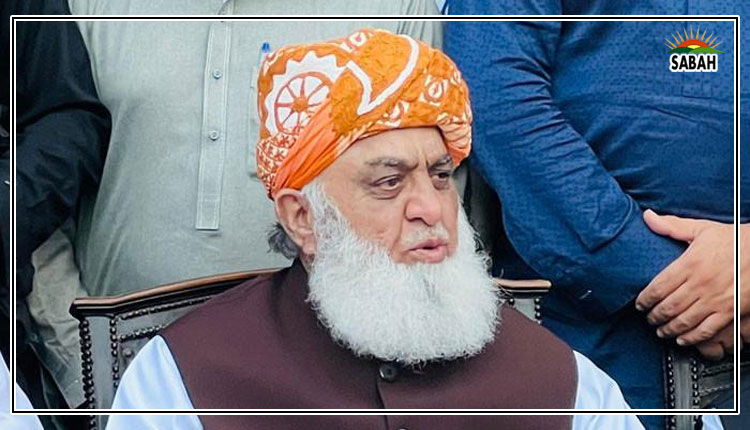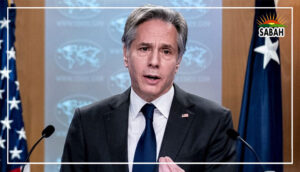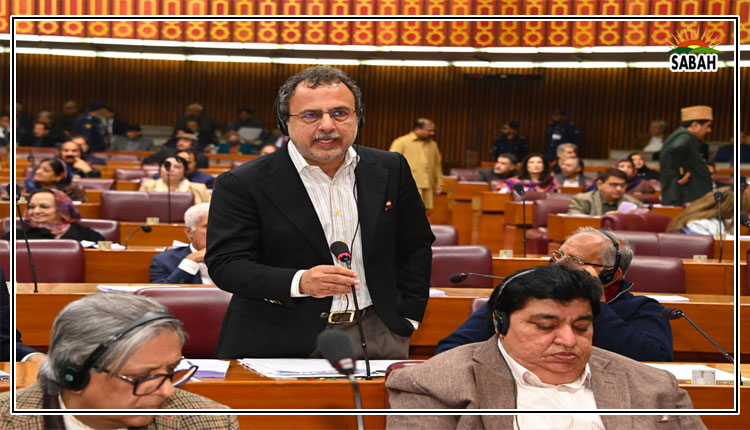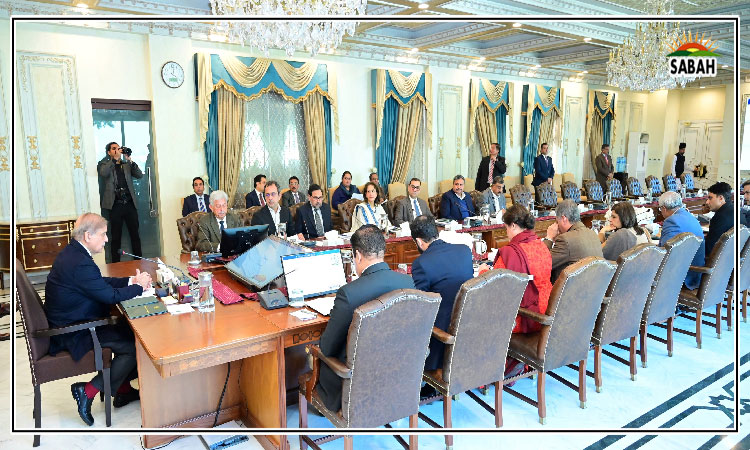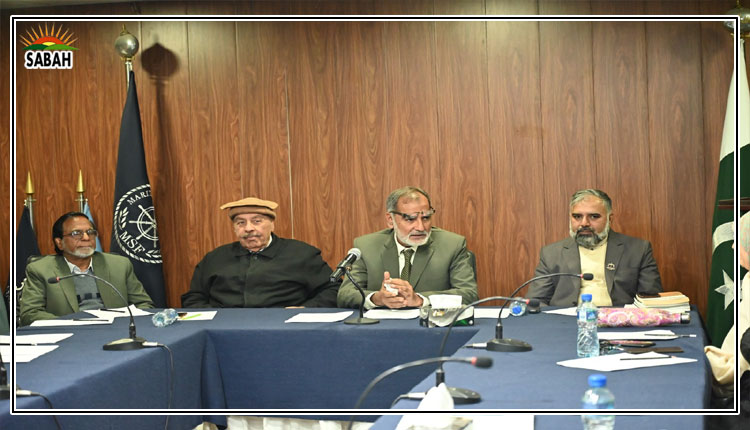IPS launches study group to review new government’s bills & laws on socio-legal issues
ISLAMABAD, Feb 13 (SABAH): The next government should make and amend laws that could affect the cohesiveness of the society and family, keeping the country’s social fabric, national character, and religious subtleties in view while fulfilling its international commitments.
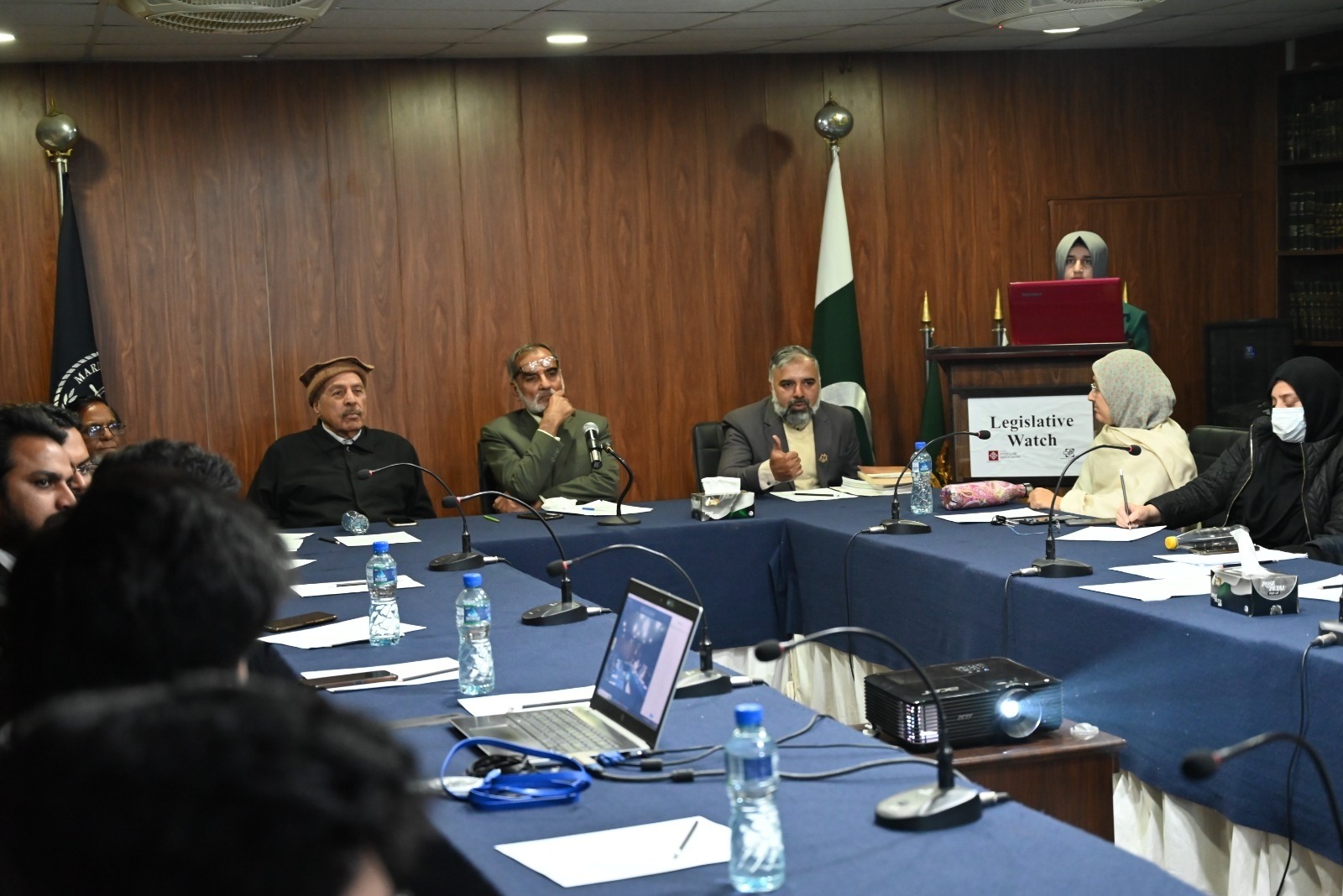
This was observed by speakers at the launch event of ‘Study Group on Socio-legal Legislation’ – a dynamic forum established by the Institute of Policy Studies (IPS), Islamabad, to generate debate and offer indigenous policy options for viable legislation in the country.
The forum, intended to cultivate a pool of researchers for impactful contributions to the policymaking process, comprises law practitioners, academics, religious scholars, and social activists. This initiative aims to engage with stakeholders on socio-legal issues in an unbiased, constructive, and result-oriented manner. The group will convene periodically to deliberate upon various aspects of enactments and bills to form a coherent narrative for the policymakers, opinion makers, and common citizens, with expected outcomes in the form of policy inputs and legislative reviews.
The maiden meeting of the study group was addressed by Khalid Rahman, Chairman, IPS, Professor Dr. Shahzad Iqbal Sham, constitutionalist and law commentator, Syed Nadeem Farhat, senior researcher, IPS, Dr. Shagufta Umar, director, Women Aid Trust, Khalid Naeem, member National Commission on the Rights of Child (NCRC), Asma Mushtaq, advocate Supreme Court, and other participants, including law practitioners, academics, ulema, and social activists.
In introductory remarks, Nadeem Farhat said empowering efficient legislation plays a pivotal role in maintaining societal order, with a growing emphasis on family-related laws reflecting evolving societal norms. In a parliamentary democracy, legislative bodies assume a crucial role in addressing societal issues by enacting and amending laws that resonate with the population’s changing needs. The significance of legislation, particularly in family matters, underscores the state’s commitment to fostering equitable and just social structures.
In the context of Pakistan, exploring the evolution of legislative responsiveness becomes paramount as it reflects the nation’s commitment to adapting legal frameworks to meet the contemporary needs of its citizens, he said. Overall, legislative initiatives are indispensable tools in shaping the legal landscape, ensuring social harmony, and responding to the dynamic challenges of a changing society.
The discussion emphasized the pivotal need to develop an efficient legislative toolkit to ensure efficacy and alignment in law-making. The participants further recognized the importance of citizen awareness, stressed the critical role of aligning legal frameworks with evolving societal changes, cautioned against impulsive law-making, and emphasized the necessity of harmonizing core values with human rights principles.
The participants acknowledged the imperative of coordinating with provincial assemblies and engaging with provincial bureaucracies. Furthermore, ensuring public accessibility to information regarding the laws and the purpose of laws was deemed vital to fostering citizens’ understanding. The discussion called for a deeper exploration into law-making dynamics for an effective legislative framework.
In concluding remarks, Khalid Rahman stressed the imperative of capacity building within society, acknowledging that legislators play a pivotal role in shaping the socio-legal landscape. Additionally, he highlighted the importance of coalition building, recognizing the collaborative efforts required to navigate the complexities of legislative processes and their impact on society.



